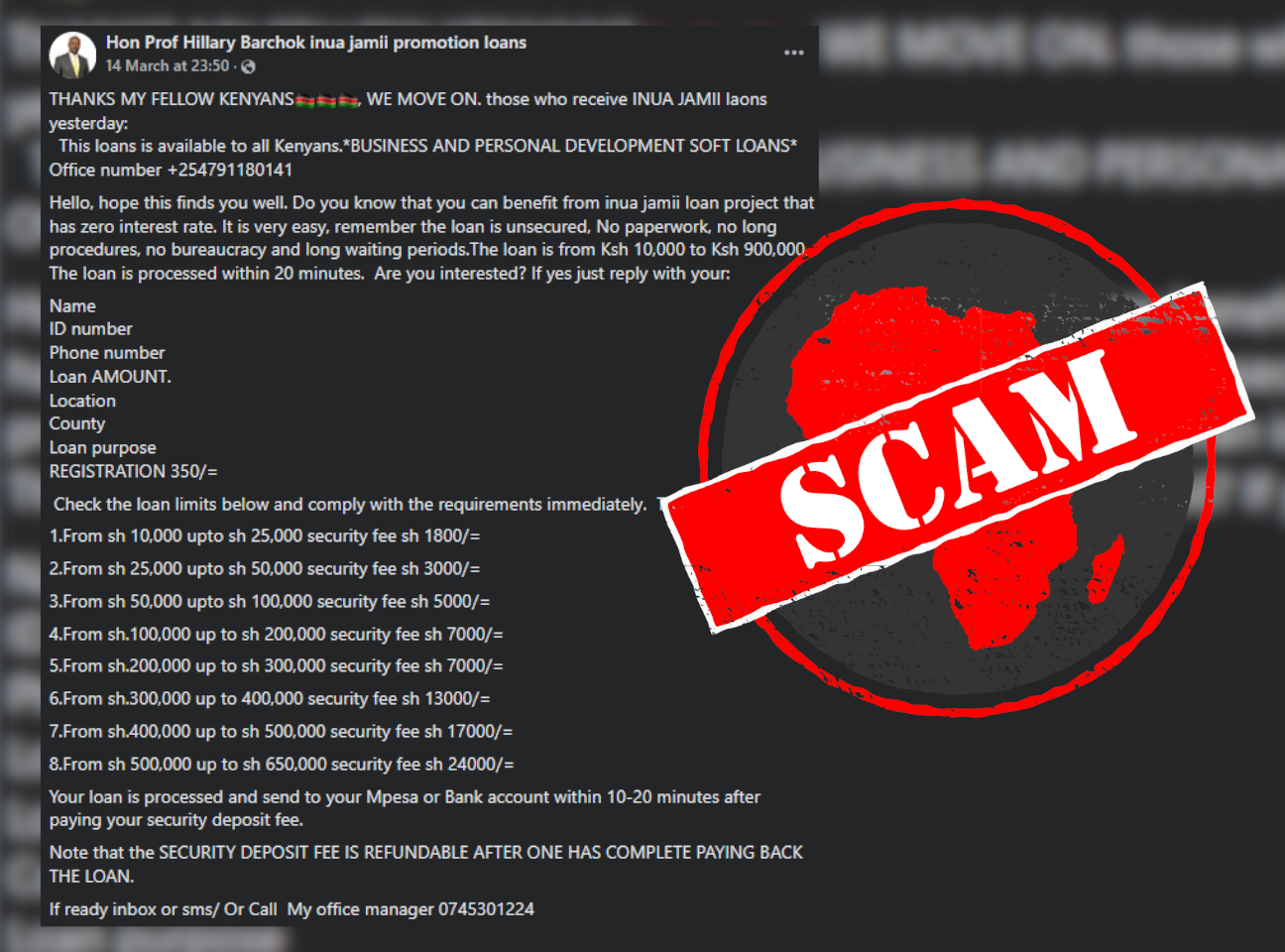IN SHORT: A Facebook account using Bomet county governor Hillary Barchok’s name offers zero-interest loans to Kenyans. Don’t fall for it, the account is run by an imposter.
The Facebook account Hon Prof Hillary Barchok inua jamii promotion loans offers Kenyans interest-free loans of up to KSh900,000 (about US$6,548).
The account uses the name and photos of Kenyan politician Hillary Barchok, who serves as the governor of Bomet county.
The account claims that the loans are from Inua Jamii, the Kenyan government programme that gives cash grants to poor and vulnerable people. Inua Jamii is a Kiswahili phrase that means “uplift the community”.
Interested users are asked to reply to the advert with their name, telephone number and identity card number. They also need to provide their location, the loan amount they need and its purpose.
The offers have been posted on different dates here, here, here, here, here, here, here, here and here.
But is the account and its offers legit? We checked.

Scam offers
We noted that the adverts contain numerous grammatical errors. We found simple words like “loan” and “details” spelled repeatedly as “laons” and “ditails”. If the post was published by a Kenyan governor or any member of his team, we would expect it to be error-free.
The offers are also too good to be true. It is unlikely that a politician would give thousands of Kenyan shillings to strangers on Facebook. This could raise questions about where he gets the money.
The account claims that the loans come from Inua Jamii. The programme does not provide loans but rather cash grants to the poor and vulnerable. This has been stated several times on the programme’s official Facebook page.
Barchok’s official page is Governor Prof. Hillary Barchok,EGH. It is verified by Meta and has 70,000 followers. There are no loan offers or giveaways on his verified page.
Protect yourself from such bogus offers by reading our guide to spotting online scams here.
Republish our content for free
For publishers: what to do if your post is rated false
A fact-checker has rated your Facebook or Instagram post as “false”, “altered”, “partly false” or “missing context”. This could have serious consequences. What do you do?
Click on our guide for the steps you should follow.
Publishers guideAfrica Check teams up with Facebook
Africa Check is a partner in Meta's third-party fact-checking programme to help stop the spread of false information on social media.
The content we rate as “false” will be downgraded on Facebook and Instagram. This means fewer people will see it.
You can also help identify false information on Facebook. This guide explains how.




Add new comment